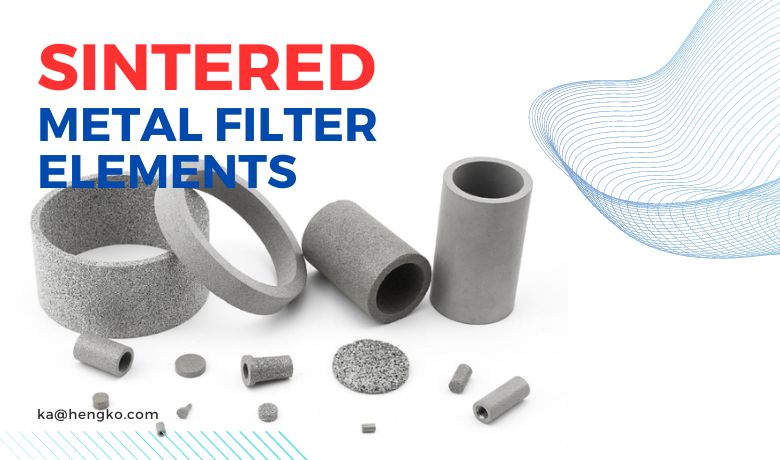-
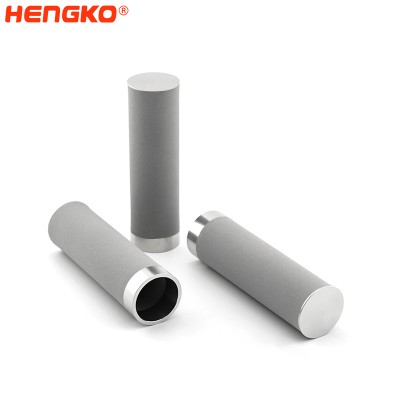
HENGKO Superior Membrane Surface Porous Sintered Metal Filter
Product Description:Upgrade your filtration efficiency and prolong the lifespan of your filters! HENGKO's sintered porous stainless steel filter product util...
View Detail -
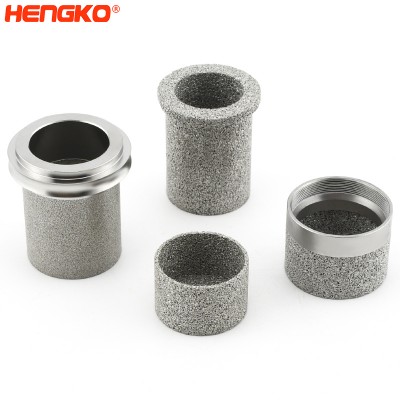
Enhance Filtration Efficiency with High-Quality Sintered Metal Filter Train Accessories
Are you looking for top-notch filtration solutions for your train? Look no further! Our high-quality sintered metal filter train accessories are here to revo...
View Detail -
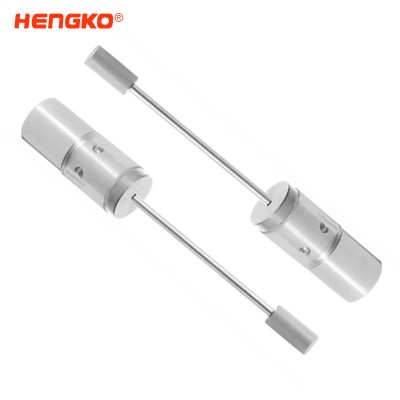
HENGKO® Grab Sampler Filter
Introducing: Filtered Grab Sampler with Sintered Metal Filter, the perfect tool for accurate and reliable sampling in a wide range of industries. This innova...
View Detail -
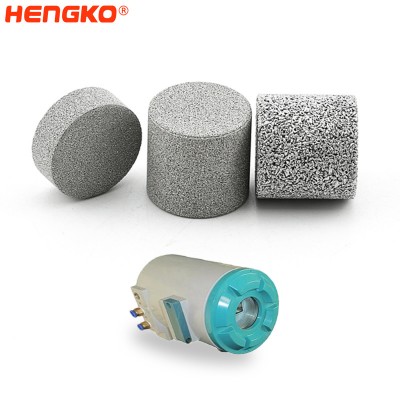
Monocrystalline silicon pressure transmitter sintered metal porous filter disc
Using single crystal silicon piezoresistive technology pressure sensor, process industry liquid level measurement applications sintered filter disc material:...
View Detail -
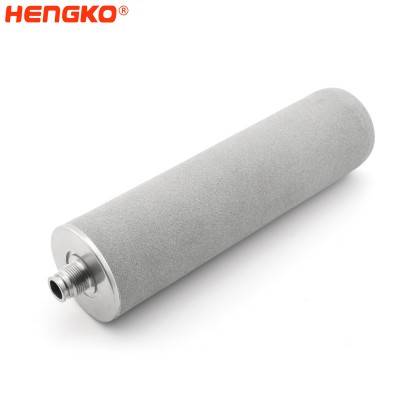
High performance porous sintered metal stainless steel isostatic filters tubes support ...
Stainless steel sintered tubes are made of stainless steel powder, processed by sintering technology. This product can purify the contaminated media and achi...
View Detail -
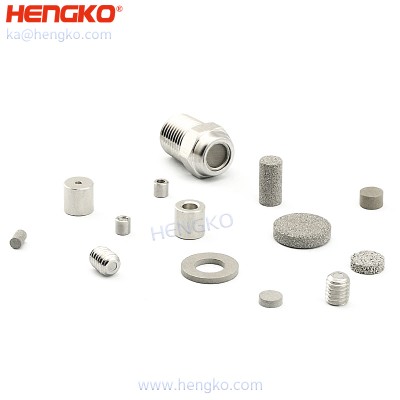
Low Flow Drug Delivery Flow Elements by Sintered Metal Elements to Deliver the Drug Mol...
Pharmaceutical or medical device companies seek new ways to deliver their drug molecules to patients (Porous metal flow filter). For drugs that require freq...
View Detail -
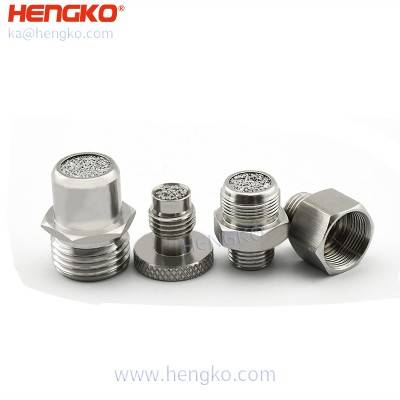
High flow non-invasive ventilator Inspiratory Bacteria Filter air inlet medical grade ...
HENGKO's filter element of the ventilator is stainless steel 316, stainless steel 316L, which has the characteristics of filtering and dustproof. Its materia...
View Detail -
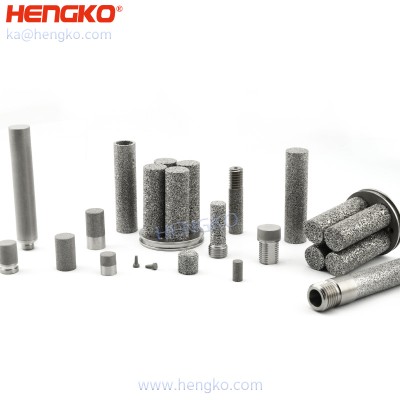
Good grade sintered porous metal stainless steel textile filters for polymer filtration
Good-grade sintered metal stainless steel textile filters for polymer filtration Hengko’s food-grade textile filters are primarily manufactured in the form ...
View Detail -
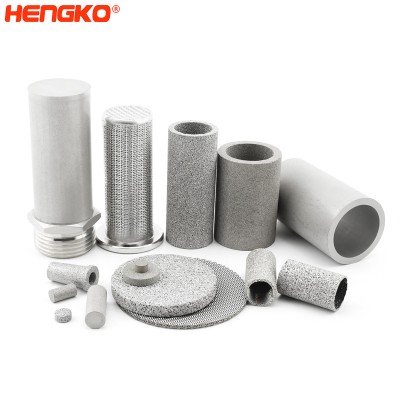
Food grade microns 316L stainless steel powder sintered porous metal elements filter me...
Product Describe The Candle Filters are installed for clarification and recovery applications from liquids with low solids content ranging from 5% to PPM lev...
View Detail -
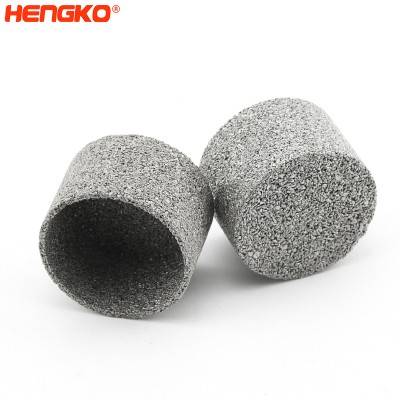
Sintered powder filter elements/sintered porous metal filter cups / cylinders
HENGKO stainless steel filter tubes are made by sintering 316L powder material or multilayer stainless steel wire mesh at high temperatures. They have been w...
View Detail -
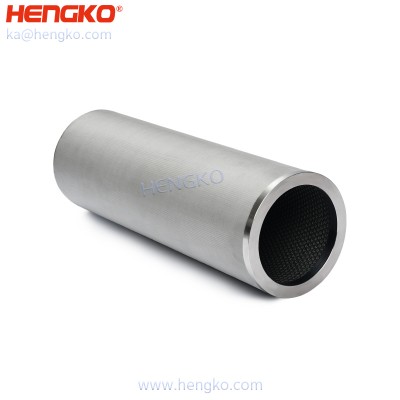
Customized 1 15 40 70 100 Microns Cylindrical Sintered Metal Stainless Steel 316L Porou...
Product Describe HENGKO stainless steel filter elements are made by sintering 316L powder material or multilayer stainless steel wire mesh at high temperatur...
View Detail -
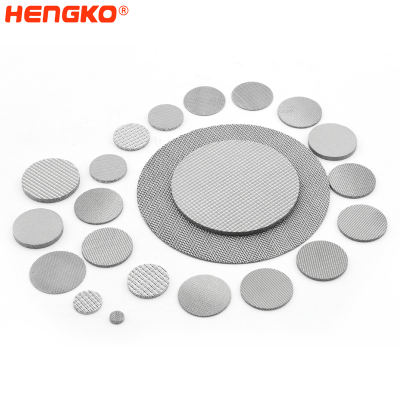
Resistance and Corrosion Resistance Sintered Porous Metal Filter Elements for Hot Gas P...
HENGKO manufactures a comprehensive and diverse range of medium, fine and ultra-fine filter meshes. A growing number of sintered meshes are now available to ...
View Detail -
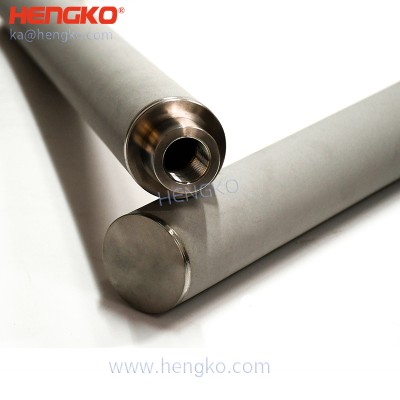
Cylindrical Filter Sintered Metal Powder Stainless Steel Filter Elements for Catalyst R...
Product Describe Developing de-dusting hot gases is of increasing importance and interest, especially in advanced power generation systems and (petro-)chemic...
View Detail -
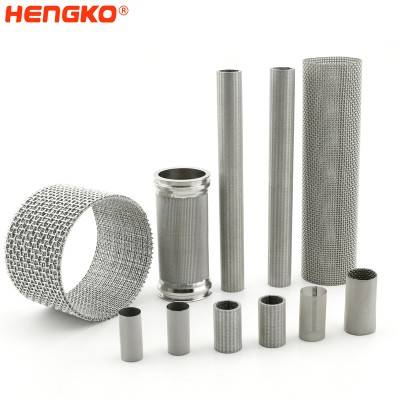
30 40 90 Microns Sintered SUS 304 SS 316L stainless steel composite media filters for c...
Sinter wire mesh filters are usually used for purification and filtration of liquid and gas, separation and recovery of solid particles, transpiration coolin...
View Detail
Types of Sintered Metal Filter Elements
Sintered metal filter elements are porous structures made from metal powders that are bonded together through sintering.
Normally offer a range of filtration capabilities and are widely used in various industrial applications.
Here are some of the main types of sintered metal filter elements:
By Craftsmanship
1. Sintered Wire Mesh Filters:
These filters are constructed by layering and sintering multiple sheets of metal wire mesh. They provide high strength, high permeability, and excellent resistance to high temperatures and pressures. Common applications include liquid and gas filtration, fluidization, and catalyst supports.
2. Sintered Metal Fiber Felt (Random Fiber) Filters:
These filters are made from randomly oriented metal fibers that are bonded together through sintering. They offer high porosity, high dust-holding capacity, and excellent filtration efficiency for fine particles. Common applications include air filtration, gas purification, and liquid filtration.
3. Sintered Powder Porous Metal Filters:
These filters are made from metal powders that are sintered into a porous structure. They provide high precision filtration, excellent chemical resistance, and the ability to filter very fine particles. Common applications include pharmaceutical and semiconductor processing, medical device manufacturing, and environmental protection.
4. Combination Filters:
These filters combine different types of sintered metal structures, such as wire mesh and fiber felt, to achieve specific filtration characteristics. They offer a tailored combination of strength, permeability, and filtration efficiency. Common applications include high-pressure filtration, multi-stage filtration, and specialized filtration processes.
By Materials:
Then if classification of sintered filter elements by metal material, we can check details as following:
1. Stainless steel sintered filters are made from stainless steel powder and offer high strength, corrosion resistance, and heat resistance.
They are commonly used in food and beverage processing, pharmaceutical, and chemical applications.
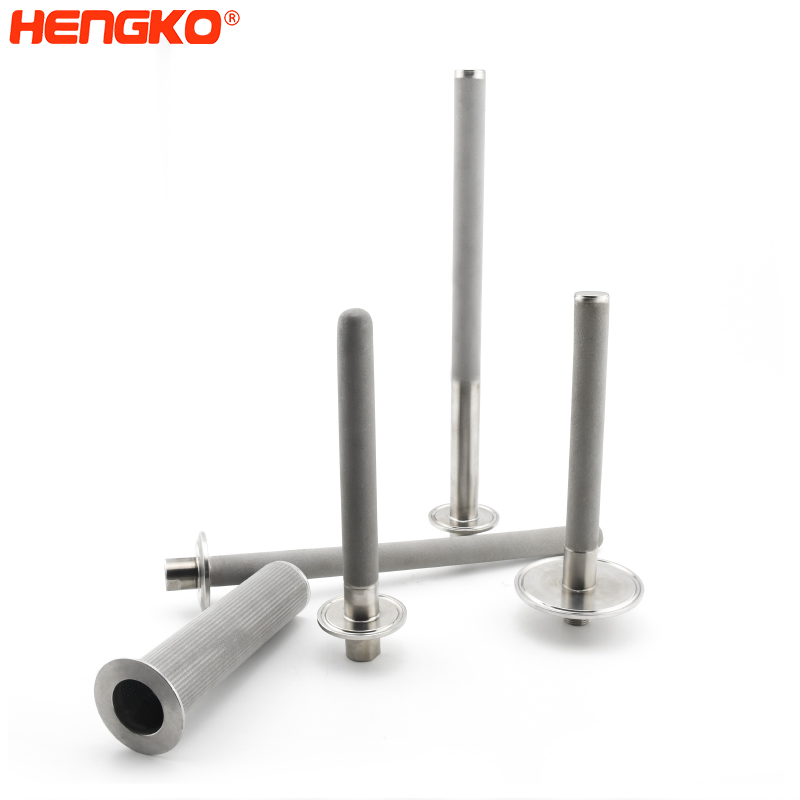
2. Bronze sintered filters are made from bronze powder and offer good wear resistance, corrosion resistance, and machinability.
They are commonly used in automotive, aerospace, and hydraulic applications.
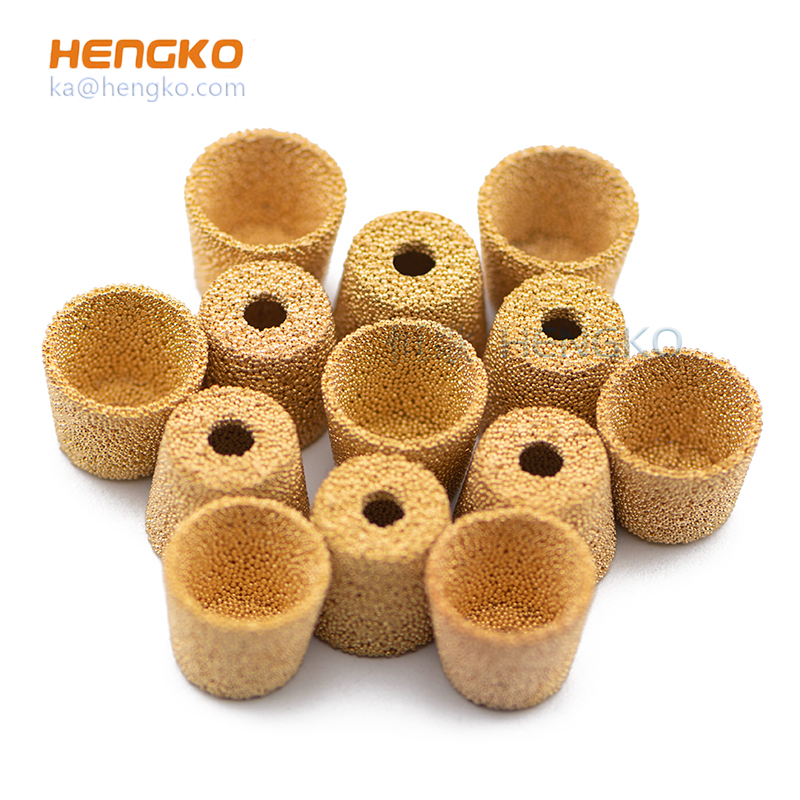
3. Nickel sintered filters are made from nickel powder and offer high strength, corrosion resistance, and high-temperature resistance.
They are commonly used in aerospace, chemical, and nuclear applications.
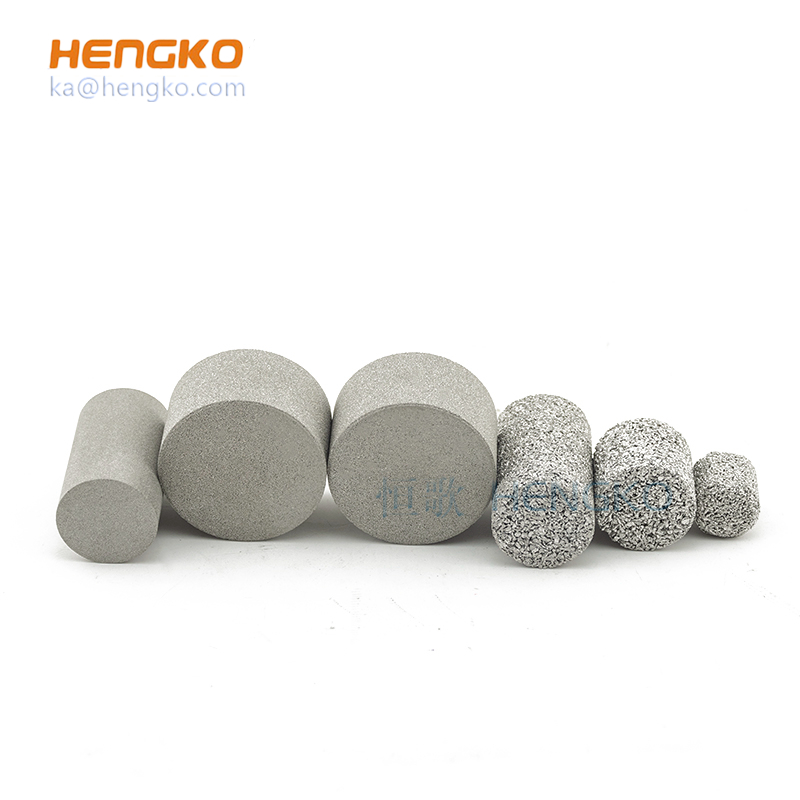
Other metal sintered filters can also be manufactured from other metal materials, such as aluminum, titanium,
and molybdenum. These materials offer different properties to meet specific application needs.
In addition to these main types, there are various specialized sintered metal filter elements designed
for specific applications. These include pleated filters, basket filters, disc filters, and conical filters.
Main Features:
Sintered metal filter elements offer several advantages over other types of filters as following, including:
* High strength and durability
* Excellent resistance to corrosion and high temperatures
* High permeability and filtration efficiency
* Easy cleaning and regeneration
* Wide range of materials and pore sizes
Application
Sintered metal filter elements are used in a wide range of industries, including:
* Oil and gas
* Chemical processing
* Pharmaceuticals and electronics
* Food and beverage
* Water treatment and environmental protection
* Aerospace and automotive
The choice of sintered metal filter element depends on the specific application requirements,
such as filtration efficiency, pore size, operating temperature, and pressure.
Main features of our Sintered Metal Filter Elements
1. High Filtration Efficiency:
As you know, Sintered metal filter elements are designed to provide excellent filtration efficiency by effectively removing solid particles and contaminants from fluids or gases. They can achieve filtration levels ranging from coarse to fine, depending on the specific application requirements.
2. Robust Construction:
These filter elements are made from sintered metal powders, typically stainless steel, which ensures their durability and resistance to corrosion, high temperatures, and pressure differentials. They can withstand harsh operating conditions and maintain their filtration performance over an extended service life.
3. Uniform Pore Structure:
Sintering involves bonding metal particles together, creating a porous structure with precisely controlled pore sizes. Top-quality sintered metal filters have a uniform pore structure, enabling consistent and reliable filtration performance.
4. Wide Chemical Compatibility:
Sintered metal filter elements are chemically inert and compatible with a broad range of fluids and gases. They can effectively filter various liquids, acids, alkalis, solvents, and gases without undergoing degradation or chemical reaction.
5. High Flow Rates:
The design of sintered metal filters allows for high flow rates while maintaining efficient particle removal. They offer low-pressure drops, minimizing energy consumption and maximizing filtration throughput.
6. Excellent Cleanability:
Sintered metal filter elements can be easily cleaned through backwashing, ultrasonic cleaning, or chemical cleaning methods. Their robust construction and stable pore structure enable repeated cleaning cycles without compromising filtration performance.
7. Wide Temperature and Pressure Range:
HENGKO's filters can withstand high operating temperatures and pressure differentials. They are suitable for applications requiring filtration in extreme temperature conditions or under high-pressure environments.
8. Versatility:
Sintered metal filter elements find applications in various industries, including chemical processing, pharmaceuticals, food and beverage, oil and gas, water treatment, automotive, and aerospace. They are adaptable to different filtration needs, offering customized options for specific applications.
9. Low Maintenance:
Due to their durability and cleanability, sintered metal filters require minimal maintenance. Regular cleaning and occasional replacement ensure their long-term reliability and efficient filtration performance.
10. Consistent Performance:
Top-quality sintered metal filter elements undergo rigorous quality control measures during manufacturing to ensure consistent performance and adherence to filtration standards.
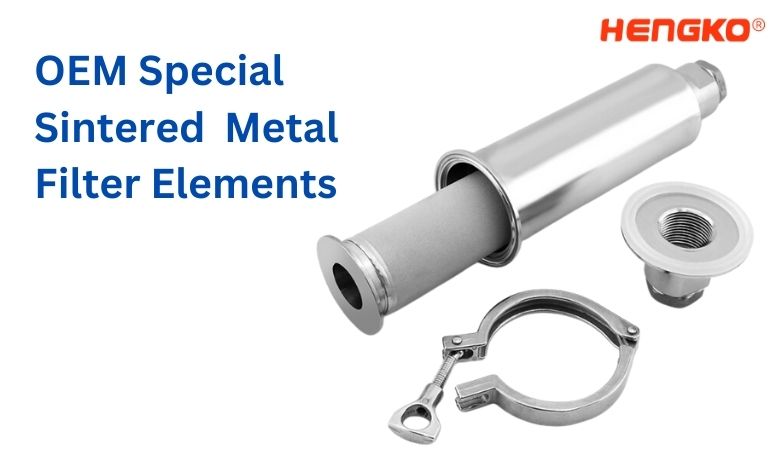
Applications of Sintered Porous Metal Filter Elements
Sintered porous metal filter elements find a wide range of applications across various industries due to their unique characteristics and filtration capabilities. Here, I will provide a detailed explanation of some key applications:
1. Filtration in the Chemical Industry:
Sintered porous metal filter elements are extensively used in the chemical industry for filtration processes. They can effectively remove solid particles, contaminants, and impurities from liquids and gases. In chemical manufacturing, these filters are employed in processes such as catalyst recovery, polymer production, and separation of different chemical compounds. Their robust construction and chemical compatibility make them suitable for filtering aggressive chemicals and corrosive substances.
2. Filtration in the Pharmaceutical Industry:
In the pharmaceutical industry, sintered porous metal filters play a vital role in ensuring the purity and quality of drugs and pharmaceutical products. They are commonly used for sterile filtration, removing bacteria, particles, and microorganisms from liquids, gases, and solvents. These filters are crucial in pharmaceutical processes like fermentation, purification of active pharmaceutical ingredients (APIs), and filtration of pharmaceutical intermediates. Their high filtration efficiency and cleanability help maintain strict quality standards and prevent contamination.
3. Filtration in the Food and Beverage Industry:
Sintered metal filters are widely employed in the food and beverage industry for various filtration applications. They are used for clarifying liquids, removing solids, and ensuring product quality and safety. These filters are utilized in processes such as beer and wine filtration, vegetable oil purification, dairy product processing, and juice clarification. Sintered metal filter elements provide hygienic filtration, high flow rates, and resistance to high temperatures and pressures, making them suitable for demanding food and beverage production environments.
4. Filtration in the Oil and Gas Industry:
Sintered porous metal filters find extensive use in the oil and gas industry for filtration and separation purposes. They are employed in upstream exploration and production activities, as well as downstream refining and processing operations. These filters are utilized for removing particulate matter, sediments, and contaminants from oil, gas, and various process fluids. They offer excellent resistance to high pressures, temperature fluctuations, and aggressive chemicals, making them well-suited for critical applications such as well injection, natural gas filtration, and hydrocarbon recovery.
5. Filtration in the Water Treatment Industry:
Sintered metal filter elements play a crucial role in the water treatment industry, providing efficient filtration for both potable water and wastewater treatment processes. These filters effectively remove suspended solids, sediments, bacteria, and other impurities from water, ensuring clean and safe drinking water or meeting stringent discharge standards for wastewater. Sintered metal filters are utilized in applications such as pre-filtration, membrane protection, activated carbon filtration, and groundwater remediation. Their long service life, cleanability, and resistance to fouling make them ideal for continuous filtration operations.
6. Filtration in the Automotive Industry:
Sintered porous metal filter elements are employed in various applications within the automotive industry. They are commonly used for air filtration in automotive engines, ensuring clean intake air and protecting the engine from contaminants. Sintered metal filters can efficiently capture particulate matter, dust, and other airborne impurities, preventing engine damage and maintaining optimal performance. Additionally, these filters are utilized in fuel filtration systems, providing effective particle removal and preventing fuel injector clogging.
7. Filtration in the Aerospace Industry:
In the aerospace industry, sintered metal filters are utilized for critical filtration applications, ensuring the reliability and performance of aerospace systems. These filters are used in hydraulic systems, fuel systems, lubrication systems, and pneumatic systems. They provide efficient particle removal, protecting sensitive components from contamination and maintaining system integrity. Sintered metal filters are valued for their high temperature resistance, chemical compatibility, and ability to withstand extreme operating conditions, making them suitable for aerospace applications.
Sintered porous metal filter elements offer versatile and reliable filtration solutions across a wide range of industries. Their robust construction, high filtration efficiency, chemical compatibility, and resistance to harsh conditions make them indispensable in various critical applications, ensuring the purity, quality, and safety of products and processes.
What you should care when OEM for your filtration project or devices , equipment ?
When opting for OEM (Original Equipment Manufacturer) services for your filtration project or devices, there are several key aspects to consider. Here are some important factors to care for during the OEM process:
-
Quality Assurance: Ensure that the OEM provider has a strong commitment to quality assurance. Look for certifications, such as ISO 9001, that demonstrate their adherence to international quality standards. Quality is crucial in filtration applications to ensure reliable and consistent performance.
-
Customization Capabilities: Evaluate the OEM provider's ability to customize filtration solutions according to your specific project requirements. Discuss your application needs, such as desired filtration efficiency, flow rates, pressure limits, and chemical compatibility. A capable OEM partner should have the expertise to design and manufacture tailored filtration equipment that aligns with your unique specifications.
-
Technical Expertise: Consider the OEM provider's technical expertise and experience in filtration technology. They should have a deep understanding of filtration principles, materials, and industry best practices. Look for a track record of successful filtration projects and a team of skilled engineers who can provide expert guidance and support throughout the OEM process.
-
Product Range and Innovation: Assess the OEM provider's product range and their commitment to innovation. A diverse range of filtration products indicates their capability to address various filtration challenges. Additionally, inquire about their research and development efforts to ensure they stay updated with emerging technologies and can offer cutting-edge solutions for your project.
-
Manufacturing Facilities: Evaluate the OEM provider's manufacturing facilities and capabilities. Consider factors such as production capacity, equipment quality, and quality control processes. A well-equipped manufacturing facility ensures efficient production, timely delivery, and consistent product quality.
-
Regulatory Compliance: Verify that the OEM provider follows relevant industry standards and regulations. Depending on your application and industry, there may be specific compliance requirements, such as FDA regulations for food and pharmaceutical filtration. Ensuring compliance with applicable standards and regulations is essential to meet legal obligations and ensure product safety and reliability.
-
Customer Support and Service: Assess the OEM provider's commitment to customer support and after-sales service. They should offer responsive communication channels, technical assistance, and warranty support. Timely and reliable customer support is crucial in addressing any concerns or issues that may arise during the OEM process or after product deployment.
-
Cost-effectiveness: While considering the above factors, also evaluate the OEM provider's pricing and cost-effectiveness. It's important to strike a balance between quality, customization, and affordability. Request detailed quotations and compare them with the value and benefits offered by the OEM provider to make an informed decision.
By considering these key factors during the OEM process for your filtration project or devices, you can ensure a successful partnership with an OEM provider that meets your specific requirements, delivers high-quality products, and provides excellent support and service.
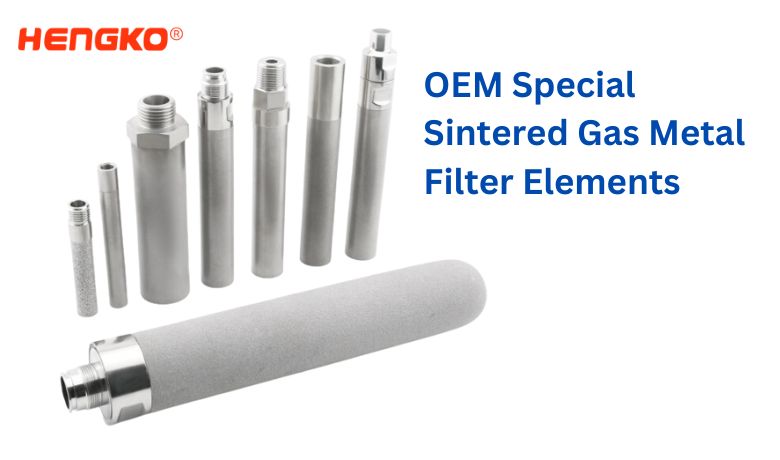
FAQs
Q1: What are the key features of sintered metal filter elements?
A1: Sintered metal filter elements possess several key features that make them highly effective in filtration applications.
These features include high filtration efficiency, robust construction for durability and resistance to corrosion and high temperatures, uniform pore structure for consistent performance, wide chemical compatibility, high flow rates, excellent cleanability, suitability for a wide temperature and pressure range, versatility across industries, low maintenance requirements, and consistent performance.
Q2: What are the common applications of sintered metal filter elements?
A2: Sintered metal filter elements find applications in various industries.
Some common applications include filtration in the chemical industry for catalyst recovery and separation processes, filtration in the pharmaceutical industry for sterile filtration and drug purity maintenance, filtration in the food and beverage industry for clarifying liquids and ensuring product quality, filtration in the oil and gas industry for removing contaminants from oil, gas, and process fluids, filtration in the water treatment industry for purifying potable water and treating wastewater, filtration in the automotive industry for air and fuel filtration, and filtration in the aerospace industry for critical filtration in hydraulic, fuel, and lubrication systems.
Q3: How do sintered metal filter elements function?
A3: Sintered metal filter elements function based on their unique structure.
They consist of metal powders that are bonded together through the sintering process, creating a porous structure with controlled pore sizes. When a fluid or gas passes through the filter, particles larger than the pore size get trapped, while the fluid or gas passes through the filter media.
The uniform pore structure ensures consistent filtration performance, and the high filtration efficiency removes solid particles and contaminants from the fluid or gas stream.
Q4: What is the installation process for sintered metal filter elements?
A4: The installation process for sintered metal filter elements may vary depending on the specific application and the design of the filter housing. In general, the filter element needs to be securely installed in the appropriate housing or filter assembly. This typically involves ensuring proper alignment and sealing to prevent bypass of the fluid or gas being filtered.
It's important to follow the manufacturer's instructions and guidelines for the specific filter element and housing being used to ensure a correct and effective installation.
Q5: How can sintered metal filter elements be cleaned?
A5: Sintered metal filter elements can be cleaned through various methods such as backwashing, ultrasonic cleaning, or chemical cleaning. Backwashing involves reversing the flow through the filter to dislodge and remove trapped particles. Ultrasonic cleaning uses high-frequency sound waves to agitate and remove contaminants from the filter surface.
Chemical cleaning involves using specific cleaning agents to dissolve or remove accumulated debris or substances from the filter. The appropriate cleaning method will depend on the type of contaminants and the specific requirements of the filter element, and it's important to follow the manufacturer's recommendations for cleaning procedures.
Q6: How long do sintered metal filter elements last?
A6: The lifespan of sintered metal filter elements can vary depending on factors such as the operating conditions, the type and concentration of contaminants, and the maintenance practices. However, with proper care and regular cleaning, sintered metal filter elements can have a long service life.
The robust construction and cleanability of these filters allow for repeated cleaning cycles, which helps maintain their filtration performance and extends their lifespan. It's recommended to monitor the filter element's condition regularly and replace it when it shows signs of damage or reduced filtration efficiency.
Q7: Can sintered metal filter elements be customized for specific applications?
A7: Yes, sintered metal filter elements can be customized to suit specific application requirements. The pore size, dimensions, and shape of the filter element can be tailored to meet the desired filtration specifications. Additionally, the choice of material, such as stainless steel or other alloys, can be selected based on the chemical compatibility and temperature resistance needed for the application. Manufacturers often offer customization options to ensure the filter element's optimal performance in specific industries and applications.
Q8: Are there any safety considerations when using sintered metal filter elements?
A8: When using sintered metal filter elements, it's important to consider the specific safety requirements of the application and industry. Depending on the substances being filtered, proper safety measures should be implemented, such as providing adequate ventilation, using appropriate personal protective equipment (PPE), and following established safety protocols. It's crucial to understand the chemical compatibility, temperature limits, and pressure ratings of the filter element to ensure safe and reliable operation.
These comprehensive answers to frequently asked questions provide a deeper understanding of sintered metal filter elements, their features, applications, function, installation, cleaning, lifespan, customization options, and safety considerations.
For further inquiries or to get in touch with HENGKO, please feel free to contact us via email at ka@hengko.com.
Our team will be happy to assist you and provide the information you need. We look forward to hearing from you!
